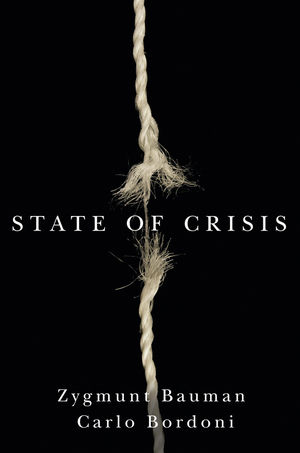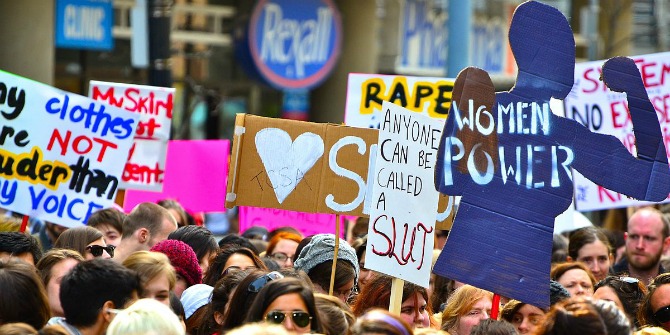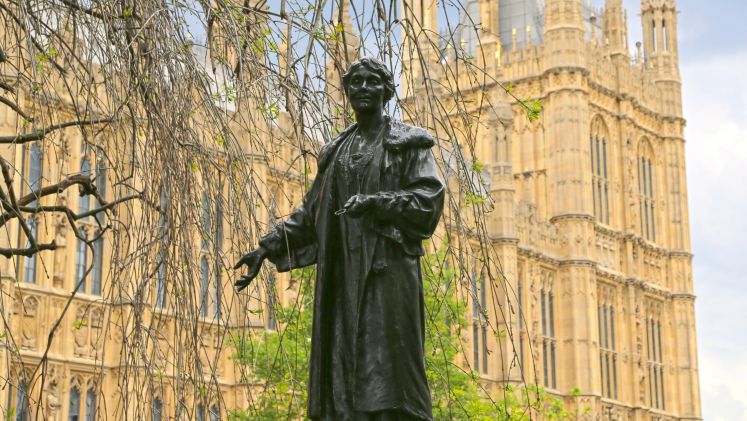Peter Lee highly recommends this contribution from Bauman and Bordoni, which will reward any serious student of politics who is willing to engage with its profound and nuanced arguments. The dialogue offers a breadth of engagement with subject matter that will provoke some as much as it encourages others.
This review was originally published on the LSE Review of Books.
 State Of Crisis. Zygmunt Bauman and Carlo Bordoni. Polity. 2014.
State Of Crisis. Zygmunt Bauman and Carlo Bordoni. Polity. 2014.
The Western world continues to convulse under the global financial crisis, hampered in its recovery by low economic growth, and is seemingly further away from achieving coordinated action on climate change than at any point in the past three decades. In State of Crisis, Zygmunt Bauman and Carlo Bordoni suggest that the economic and social crises we face – and the inertia in governmental response – are not temporary but profound and enduring. They support their thesis with a compelling analysis of statehood, modernity and democracy in a globalised world where real power – located in the global flow of capital – has been separated from politics, which continues to operate at national and local levels.
At times the authors strike a forlorn tone, these two serious thinkers who recognise that they are implicated in, and not apart from, the events they describe and assess. On the separation of power and politics Bauman writes: ‘Heads of the most powerful governments meet on Friday to debate and draw the right line of action to take, only to wait, trembling, till the stock exchanges reopen on Monday to find out whether their decision has a leg to stand on’ (p. 98). The individual fares little better than the leader to whom he or she might have turned in a previous age when politics and power had not been cleaved apart. Social media-inspired public gatherings to protest against this or run from that fall short of solutions: what could or should be done instead and who will take leadership in the process? This is the ‘crisis of agency’ (p. 103) that, for Bauman and Bordoni, makes all of the other crises intractable: the agency of the state that is no longer what many people still assume that it is, its present impotence masked by its history of successful action in the face of great challenges.
Bauman creatively adopts the concept of ‘liquid modernity’ as an analytical tool with which to make sense of what the authors term ‘modernity in crisis’. Like every concept, device or model that is used as a means of interpreting social existence it has its limitations; however, it is used effectively here to solve more problems than it causes. Any discussion of modernity, let alone a crisis of modernity, almost inevitably finds itself engaging with its one-time self-declared conclusion and briefly fashionable offspring: postmodernity. Bauman and Bordoni manage to avoid getting bogged down in terminological angst by granting considerable flexibility to an understanding of modernity – hence ‘liquidity’ – that is comfortable with the ambiguity and uncertainty that accompany the passing of epochs (if modernity is even being passed yet).
Presenting arguments that draw on the greatest and most enduring of Enlightenment thinkers, there is an occasional blurring of detail. For example, Bordoni spans the political-historical landscape from Bacon to Hegel to Marx (p. 118-9) while exploring the pursuit of human happiness in the context of struggle and hard work. Interestingly, he conflates Marx’s pursuit of happiness through work on the land with the bourgeois pursuit of happiness – ‘the daughter of Protestantism’: a nod towards Max Weber’s Protestant work ethic. There is plenty of scope here for the reader to explore the implications of such a reading. On one level Bordoni is both accurate and convincing concerning the role of work in the pursuit of happiness, in Europe at least during that particular period. On another level, however, there is a contradiction: the Protestant work ethic – Weber’s Spirit of Capitalism – stands opposed to Marx. Where Marx advocates the happiness of ‘the worker’ collective, the Protestant ethic is rooted in individualism; even when the personal pursuit of a heavenly future is overlooked in our secular times, what remains is individualised and run through with layers of meaning that Marx would reject.
It is in the discussion of democracy in crisis that the authors provide perhaps the most food for thought in uncertain times. The fluidity of democracy as a concept is explored in depth, from Tocqueville’s concern for the dictatorship of the majority to protests in Egypt, Turkey and Brazil. It is argued that the masses are no longer ill-informed and passive, but are, instead, informed, interconnected (through social media) and resistant to forms of authoritarianism – even forms of democratic authoritarianism – that have underpinned governance structures in both recent and more historically distant times. The crux of Bauman and Bordoni’s analysis of democracy lies in the nature of the crisis it is now experiencing. Political movements like Occupy Wall Street, the Indignados and the Arab Spring are viewed not as causes of a crisis of democracy and governance but as consequences of a crisis of governance and democracy (p. 147).
In the midst of these numerous, significant crises – of the State, of modernity, of democracy – Bauman sees ‘the citizen’ subordinated to ‘the consumer’, whose ultimate aim is acquisition. If Bauman is correct – like Bordoni, he presents many compelling and persuasive arguments in their dialogue – and consumption is the telos that shapes the attitudes, behaviour, hopes and aspirations of millions (billions?) of people, can any degree of social or political stability be achieved in a consumer society? Because once a product has been consumed the desire to consume remains: satisfaction is endlessly deferred despite the promises of the marketing and advertising experts.
I highly recommend this book, which will reward any serious student of politics – within academia, the political domain and beyond – who is willing to engage with its profound and nuanced arguments. The dialogue – and it is constructive dialogue rather than partisan dispute – offers a breadth of engagement with subject matter that will provoke some as much as it encourages others. In addition, it provides an original and at times provocative lens through which current political crises can be viewed: from the rise of nationalist parties across the European Union to the inability or unwillingness of governments to enact the tight constraints on the financial sector that were promised at the height of the global financial crisis.
Dr Peter Lee is a Principal Lecturer in Ethics and Political Theory at the University of Portsmouth who explores the ways in which politics, truth and ethics interact in the shaping of identity and behaviour, war and military intervention, and remotely piloted aircraft (drone) operations. His recent book Truth Wars: The Politics of Climate Change, Military Intervention and Financial Crisis was published by Palgrave Macmillan in November 2014. Read more reviews by Peter.








1 Comments